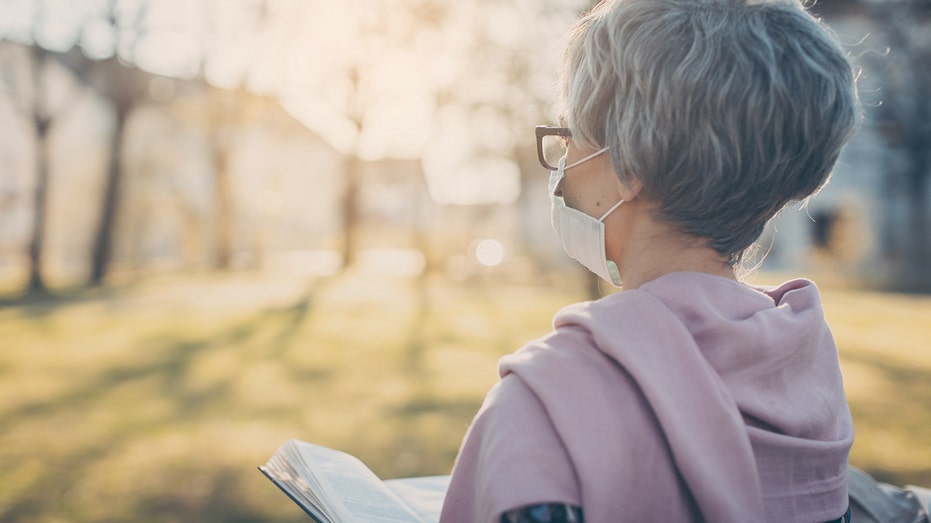"Re-entry anxiety" in coronavirus pandemic threatens reopening plans
'Re-entry anxiety' about going back to work and stepping out in public during the coronavirus is expected, health experts suggest
As coronavirus lockdown restrictions ease across the country, re-entering society with the looming thought of spreading or contracting the virus could pose anxiety for many.
The uneasy feelings caused by the unknown and potential exposure to a second wave of the virus are increasing particularly for at-risk Americans like the elderly and those with compromised immune systems or chronic medical conditions.
Health experts are calling this apprehension about the end of stay-at-home orders “re-entry anxiety.”

As all 50 states ease up on stay-at-home restrictions, many Americans may face what health experts are calling reentry anxiety.
“This entire period in our lives has been so anxiety-provoking with the virus and having to make all these lifestyle changes to develop this new normal -- whatever that looks like for us," Dr. Brittany LeMonda, a senior neuropsychologist at Lenox Hill Hospital in New York told FOX Business. "And now, we’re coming out on the other side and the protection we felt like we had while staying at home is now coming down.”
PROTESTERS PUSH BACK ON STAY AT HOME ORDERS
All 50 states have loosened restrictions on businesses reopening in an effort to revive the economy that’s been devastated by COVID-19-related shutdowns where stay-at-home orders impact more than 300 million Americans. However, health officials have urged that easing reopening orders could lead to another spike in infections.
“People who have a history of anxiety, or people who really adjusted well to this new normal, felt as though these precautions were in place to protect them from the virus, and now they might be afraid to go out for risk of exposure -- the unknown, we don’t know if there’s going to be a second wave, what’s going to happen?" LeMonda said. "We don’t have this feeling of control when we have to leave our home and that can be triggering.”
"We don’t have this feeling of control when we have to leave our home and that can be triggering,”
Exposing yourself to the elements a little bit at a time could help alleviate some stress people may feel about reverting back to everyday life. For example, taking a walk with a mask instead of going straight to a park and then easing your way into a more public place like a coffee shop while maintaining proper social distancing could be a way of getting used to re-entry.
Mental unrest can be caused by questioning little things like: “Will I get exposed by touching this doorknob?” or, “Who sat on this bench?”
CORONAVIRUS PUSHES MENTAL HEALTH COUNSELING ONLINE
There’s already been an uptick in prescriptions for anti-anxiety or other mental health medications as a result of more Americans dealing with stress related to the COVID-19 pandemic. Indeed, the use of anti-anxiety medications increased by 34.1 percent between mid-February and mid-March, when the virus broke out in the United States, according to a report by pharmacy benefit management company Express Scripts.
To be sure, when the COVID-19 pandemic worsened in the U.S., prescriptions for depression, anxiety and insomnia collectively surged by 21 percent, according to the report. The increase comes as millions of Americans have lost their jobs are a result of the COVID-19 crisis, and may now be faced with financial struggles.
“Americans feeling less in control over potentially being exposed to the virus is also causing a sense of mental unrest," LeMonda said.
And for those lucky enough to still be employed may be facing a bigger work-load and pay cuts, which can also lead to stress and burnout. A study led by the World Health Organization last year estimates that anxiety and depression disorders cost the United States $1 trillion each year in lost productivity.




















